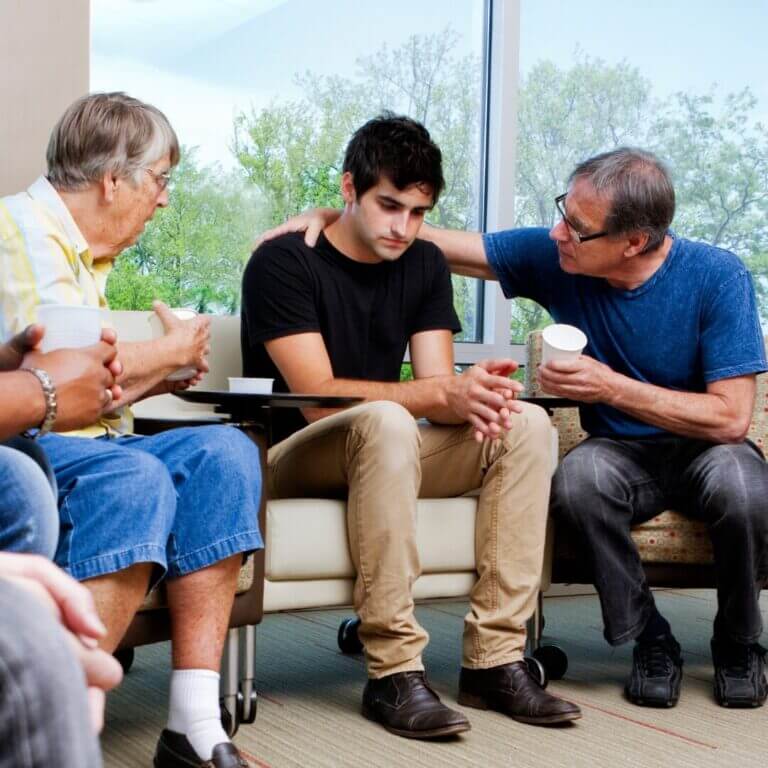“So our troubles, we think, were basically of our own making” reads a passage in the big book of Alcoholics Anonymous. This 12-Step program encourages members to look over their pasts, both the wrongs they have done to others and the wrongs they have endured, and search for their part. Why would it be beneficial to someone to admit they had a part in a situation in which they were the victim? How could that be helpful? This part of 12-Step recovery is all about keeping one’s own side of the street clean. People may not be able to undo things that happened to them, but they can work to let go of the resulting pain and resentment that had the power to change their reaction to life. This process is not meant to dismiss or downplay things that people have experienced, but more to help heal and grow and move forward. Failing to find ways to move forward after being harmed can lead to someone building their identity around being a victim.
How Victimhood Can Be Harmful
When someone is the victim of the actions of another or a life event, it’s an important part of their healing to have that experience validated. Regardless of the nature of the victimization, it’s healthy to express the feelings of powerlessness and the suffering caused by an event. With the more open discussion of trauma that’s happened in recent years, more people have had the opportunity to recognize events in their life as varying degrees of traumatic. While this is a positive step for mental health, it’s important that the conversation continues beyond the acknowledgment of trauma or victimization and on to how to grow and heal.
Continuing to feel like a victim can be harmful in that without proper progression into healing, these feelings can be constantly painful, easily triggered, and harm personal relationships. A person can begin to feel isolated in their painful experience; however, one of the most profound ways people can achieve healing is through identification with others. The reality of life is that most people have experienced being a victim in one way or another, whether they experienced infidelity, were stolen from, or had difficult experiences as children. What causes harm is when these feelings and experiences aren’t treated They have the power to define the tone of different situations later. The pain and anger people feel as a result of their trauma is often directed at others who are not the perpetrator of the victimization. This can result in a new trauma, as our interactions and relationships are tainted by it.
Choosing to take the power back from a painful experience is the first step in healing and recovering from having been a victim. It is making the decision that this past experience should no longer have the right to exercise control over the way one experiences life.
How to Take the Power Back
It’s advisable to seek the help of a mental health professional to assist in working through and processing significant trauma. There are other actions that can be taken however, outside of therapy, in order to avoid letting resentment from being victimized in the past harm experiences and relationships today.
Practice self-compassion: Remember that it’s okay to experience negative emotions when something is triggering. Acknowledge the feelings that have been brought out and validate them. It’s important for it to feel okay to have these feelings first, then action can be taken to move forward with them. Make kindness and understanding of self a priority.
Pause: When feeling triggered, or when feeling any intense emotion, the pause is an important step in changing behaviors. The pause allows for an opportunity to let the initial intense rush of emotion to pass and make choices with a clearer mind. It can provide the opportunity to recognize that the current situation is different than the original traumatizing event.
Gather the facts: After taking a moment to pause and avoid acting out on the original emotion, gather the facts of the present situation. Recognize the way that the current situation is different from the one that triggered it. Ask questions and take an honest assessment of the present.
Consider the people involved: Consider if the person that has triggered these feelings is safe or intended to cause harm. Very often it is an action that triggers a reaction, not an actual person, and being reminded that the person is safe and means you well, can help you negotiate through a negative response.
Take what actions you can: At the moment, consider what can reasonably be done about the situation. Can you walk away? Can you call a therapist or other supportive person? Can you have an honest discussion of the feelings that have been triggered? Whatever actions can be taken, should be.
Act in accordance with your own values: Respond to situations that are triggering by acting in accordance with personal values. Forgiveness, compassion, respect, and kindness might all be lacking from the person being engaged with; however, acting in line with one’s own moral virtues can create feelings of calm and confidence.
Ashley Addiction Treatment believes that connection is the key to recovery, with treatment options focused on holistic, integrated, and compassionate care. Ashley works to promote healing of the mind, body, and spirit while taking into account each individual’s experiences. If you would like to speak to someone about our care options, please reach out to us today at 800-799-4673.


